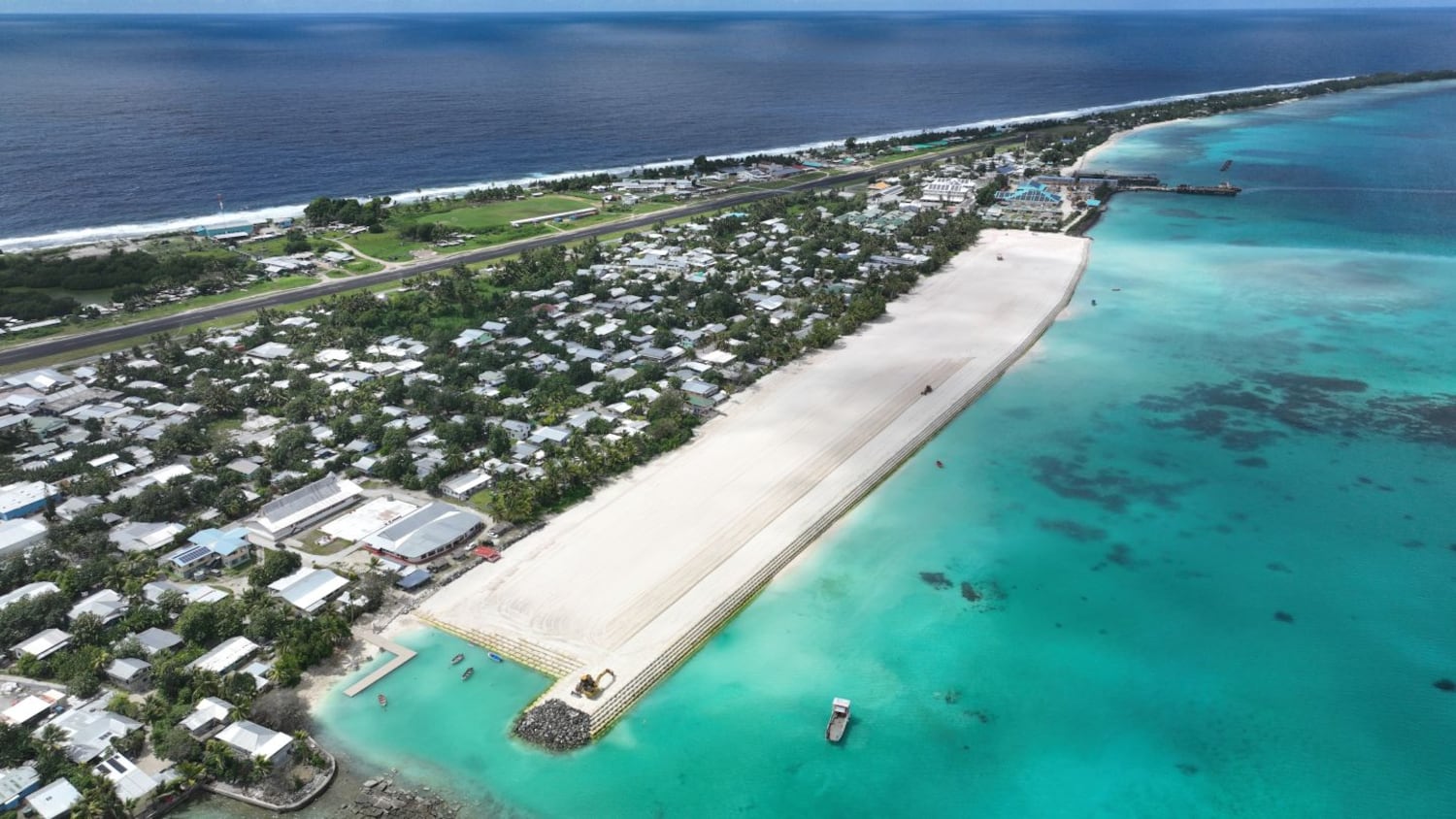BANGKOK – Low lying atoll nations told the International Court of Justice, or ICJ, that sea-level rise will render their islands uninhabitable this century, calling for a definitive opinion that lack of action to reduce carbon emissions is a breach of international law.
The two weeks of hearings which wrap up Friday have been defined by starkly different dueling narratives. One from countries – predominantly rich and industrialized – that have sought to deny or minimize blame for a rising average temperature and higher seas. The other, articulated by poor and vulnerable nations, seeks to apportion responsibility and bring about accountability.
“With the rise in sea level, Tuvalu will likely become uninhabitable long before complete inundation,” said Eselealofa Apinelu, a diplomat from Tuvalu, a coral atoll nation of 10,000 people situated halfway between Australia and Hawaii.
“King tides are increasingly causing year-round inundation as marine water percolates through the porous limestone of our coral atolls,” she told the ICJ on Thursday.
After lobbying by the Pacific island nation of Vanuatu, the U.N. General Assembly last year voted to seek an advisory opinion from the ICJ to clarify the legal obligations of states to combat climate change and the consequences of failing to act.
The opinion, expected next year, would be non-binding but could influence other courts as they consider climate change cases. If the ICJ agrees that international law as a whole applies, it could strengthen the negotiating hand of developing nations at the U.N.’s annual climate talk and for rich nations to cut emissions more rapidly and to provide more financial assistance.
Top polluters such as the United States and China told the court that their obligations were already fulfilled by participation in treaties designed to address human-driven climate change, including the 2015 Paris Agreement to limit warming to 1.5 degrees Celsius.
They argued that emissions of carbon dioxide, which trap heat in the atmosphere and raise the global temperature, cannot be likened to transboundary pollution such as a contamination of a river that passes through several countries.
Developing nations including Pacific and Caribbean island states say a range of human rights are being violated and international law as a whole applies. Bangladesh warned of the possibility of having to relocate millions of people this century from its low-lying delta.

Tuvalu’s testimony included videos played to the court of 3D simulations of how different extents of sea-level rise would completely engulf its filaments of land during storms or extreme tides.
The Marshall Islands also deployed computer modelled simulations in its testimony to demonstrate the possibility of complete inundation of its crucial fresh water wells by storm surges or high tides.
Though simplifications, the visualizations powerfully drove home the larger point of the risks the atoll nations face.
“It is not too late to prevent these doom scenarios,” Marshall Islands climate envoy Kathy Jetnil-Kijiner told the court.
RELATED STORIES
Top polluting nations dispute climate accountability at international court
Climate ‘flashpoint’ looms for Trump’s China-centric focus on Pacific: US analysts
Nauru uses high-profile UN address to press case for sea-bed mining
Land reclamation efforts
Both Marshall Islands and Tuvalu have turned to land reclamation but are reliant on donors to fully realize the plans.
The Marshall Islands said it needs about US$9 billion to fortify two of its atolls that have most of its population.
“We need time and finance. We need temperatures to stop rising so we have more time. And we urgently need finance because we just cannot afford the adaptation that is necessary,” Jetnil-Kijiner said.
Donor-funded land reclamation has added about 5% to the area of Tuvalu’s most populated island, Fogafale. The country has said it wants US$1 billion to double Fogafale’s area and raise its elevation by reclaiming 3.6 square kilometers (1.4 square miles) from the lagoon.
Apinelu also linked warmer seas and declining fish populations to the burden of health problems in Tuvalu. Half of Tuvaluans’ calories now come from rice and sugar, she said.
“As things stand, Tuvalu cannot survive the catastrophic impacts of climate change,” Apinelu said.
“Tuvalu asks that you be a part of the solution,” she told the ICJ.
Edited by Taejun Kang.
This content originally appeared on Radio Free Asia and was authored by Stephen Wright for RFA.
This post was originally published on Radio Free.